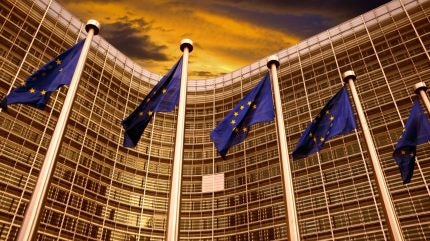
The European Commission has approved a new Strategic Framework for a Competitive and Sustainable EU (European Union) Bioeconomy, outlining measures to speed up the industrial roll-out of bio-based materials and technologies, including those used in packaging.
The plan focuses on widening the use of renewable biological resources from land and sea to reduce fossil-based inputs, bolster supply security and support more circular, low-carbon production models.

Discover B2B Marketing That Performs
Combine business intelligence and editorial excellence to reach engaged professionals across 36 leading media platforms.
According to the Commission, the EU bioeconomy was worth up to €2.7tn ($3.12tn) in 2023 and provided 17.1 million jobs.
Bio-based plastics, fibres and chemicals are already present in sectors such as packaging, automotive components and personal care.
The framework aims to push bio-based solutions from the lab to the market by boosting innovation and investment.
Planned actions include simplifying regulation, speeding up authorisations for new products and aligning EU funding with bio-based technologies.

US Tariffs are shifting - will you react or anticipate?
Don’t let policy changes catch you off guard. Stay proactive with real-time data and expert analysis.
By GlobalDataA proposed Bioeconomy Investment Deployment Group would work to assemble a pipeline of investable projects and draw in private finance.
To foster lead markets, the commission has pinpointed areas with significant potential: bio-based plastics, fibres, textiles, chemicals, fertilisers, construction materials, advanced fermentation and permanent storage of biogenic carbon.
The strategy also suggests establishing a Bio-based Europe Alliance under which European companies would collectively purchase €10bn of bio-based solutions by 2030.
Ensuring sustainable biomass supply is central to the framework.
The commission stresses maintaining broad self-sufficiency while keeping forests, soils, water and ecosystems within ecological thresholds.
Planned incentives target farmers and foresters who protect soil health, enhance carbon storage and support sustainable biomass production.
The strategy also envisages partnerships to strengthen Europe’s role in global bio-based markets, limit resource risks and improve industrial resilience.
The new framework updates and redirects the EU Bioeconomy Strategy launched in 2012 and reviewed in 2018 and 2022, placing stronger emphasis on industrial scale-up, competitiveness and resilience.
Clean, Just and Competitive Transition executive vice-president Teresa Ribera stated: “The bioeconomy holds the answer to combining prosperity with environmental protection. It restores ecosystems while leading on biotechnologies.”
Finnish-based material solutions company UPM welcomed the EU’s new Bioeconomy Strategy, calling it a decisive step to boost growth, innovation, competitiveness and climate neutrality through renewable and circular bio-based solutions.
The plan focuses on widening the use of renewable biological resources from land and sea to reduce fossil-based inputs.





